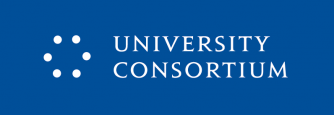Module 3.1 Student Paper: Exploring the present state of Euro-Atlantic relations
Hannah Berkman (UC Fellow, University of California, Berkeley)
We are bringing analysis written by one of our UC Fellows, Hannah Berkman, soon after the March 2018 Module at Harvard University.
In exploring the present state of Euro-Atlantic relations, the speakers and panelists at the March 2018 University Consortium at Harvard attempted to tackle three major questions: how did we get here? What is “here”? And how do we get out of here? In the weeks since the consortium, as relations between Russia and the West continue to deteriorate, it is worth reflecting on these questions in charting a way forward, toward the consortium’s stated goal: mutual understanding and sustained cooperation.
How we got here is, perhaps, the most contested and difficult question of the aforementioned three. In the short term, tensions have surely been fueled by the annexation of Crimea, Russia’s intervention in Syria, and its alleged meddling in the 2016 U.S. elections. However, commentators continue to ask why these events took place at all, and where the growing rift between Russia and the West comes from.
The consortium thus explored whether the current problem is caused by transient or deep-seated reasons, diplomatic failures and misunderstandings or a fundamental incompatibility between Russian and Western security interests. Few dispute the West’s failure to integrate Russia into the Euro-Atlantic security architecture after the Cold War, but is the path that relations have taken an inevitable one?
Russia’s desire to remain and be treated as a great power, in a word, its concerns about status, has interacted with growing mutual perceptions of threat and exchanges of blame. For Russia, the West’s actions in Kosovo, the U.S. withdrawal from ABM and invasion of Iraq, NATO enlargement, and the color revolutions are proof of the West’s revisionist and aggressive stance, of its lack of respect for and ignorance of Russian interests. The West, meanwhile, also sees Russia as a revisionist state, seeking an unacceptable sphere of influence over post-Soviet states and threatening to disrupt liberal democracy as a system. Clearly, it is the interplay of events and systemic problems, of misperceptions and structural deficiencies that has brought us here.
As for where we are, experts at the consortium continued to ask: are we in a new Cold War? The rhetoric is certainly reminiscent, with talk of “containing” Russia becoming ubiquitous again, as are the recent expulsions of diplomats, mutual suspicions of election interference and meddling in other domestic affairs, and a seemingly ongoing battle over spheres of influence. Yet despite the Kremlin’s rather recent articulation of a conservative, traditionalist line, and the continuation of what Russia sees as Western democracy promotion, this is not primarily a conflict between two incompatible universalizing ideologies. The global world order is no longer bipolar, and the current zone of conflict is geographically smaller, centering mainly around Russia’s borders and now more so in the Middle East. We are certainly in a great power rivalry, but speakers disagreed on the terms of description.
Yet in the weeks since the consortium, tensions have increased significantly. The Skripal poisoning in Britain has become an international scandal, culminating in a coordinated move to expel over 100 Russian diplomats from Europe and the U.S. Recent U.S.-imposed sanctions on Russian oligarchs have crippled one of the country’s major companies, Rusal. The recent chemical attack in Syria has only further deepened tensions, with the U.S. conducting an airstrike against alleged chemical weapons facilities there, and Russia vetoing a UN Security Council motion to further investigate the attack. The accumulation of such events has undoubtedly led to deep mutual mistrust; each side harbors serious doubts about the other’s credibility as a negotiating partner, and the sanctions regime has only become further entrenched.
The situation is only further complicated by the domestic political situation in the U.S. With the ongoing special counsel investigation into alleged collusion between Russia and the Trump campaign, any talk about Russia is shrouded in controversy. Not only are the optics of discussing re-engagement and cooperation with Russia now much trickier, but the Trump administration’s foreign policy is also largely incoherent, imposing some sanctions one minute and reneging others the next. This makes the relationship even more unpredictable, for both Russia and America’s allies in Europe.
Moving forward, or answering “how do we get out of ‘here’?” means finding balance between introspection and engagement. The consortium’s stated goal of advancing sustained dialogue between Russia and the West means both reflecting on and attempting to answer the first two questions, and thinking creatively long-term. It is naïve to think that the problems at hand will be solved through dialogue alone, but closing it down is certainly not a path to reconciliation.
That is what is so frustrating about the most recent escalation: the closures of consulates and expulsions of diplomats make it more difficult to obtain visas, and the shuttering of the British Council may mean less cultural and academic exchange between the two countries. This latest cycle of moves and counter-moves might also culminate in an even greater shrinking of Russia’s media sphere, as the Kremlin has signaled that BBC may be expelled if Britain moves against RT. In this atmosphere of distrust, animosity, and isolation, it was refreshing and inspiring to gather with American, European, and Russian colleagues to collectively engage with these questions and think creatively about our path forward. It was a reminder that as deep as our problems run, there are people who remain committed to improvement and cooperation, and projects such as these are our best hope.



